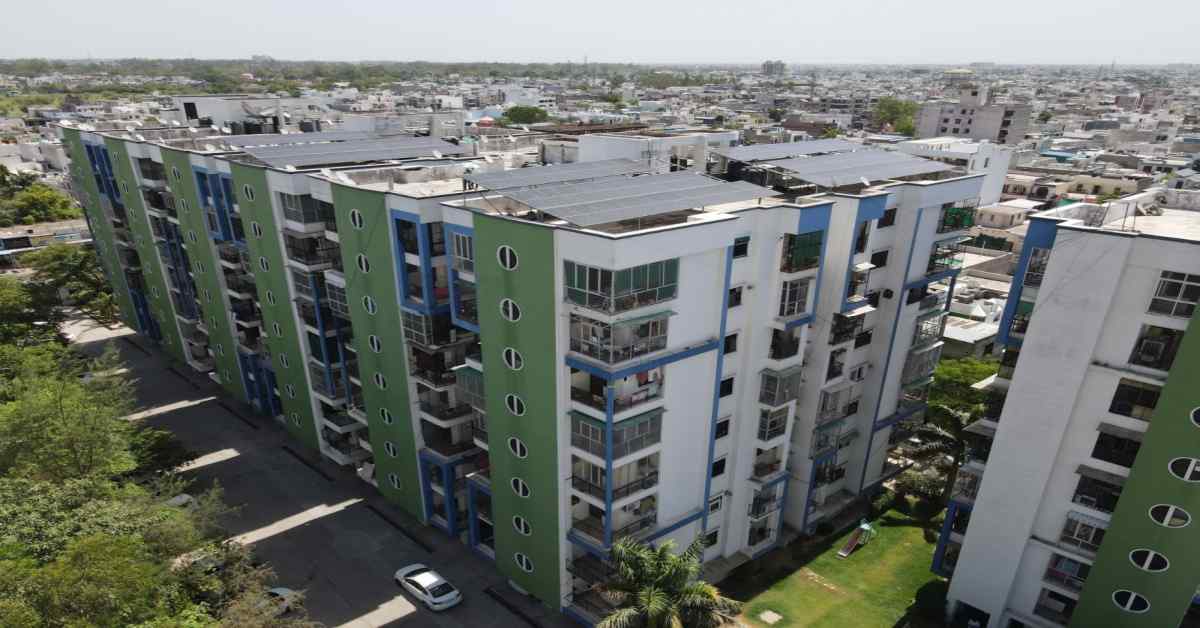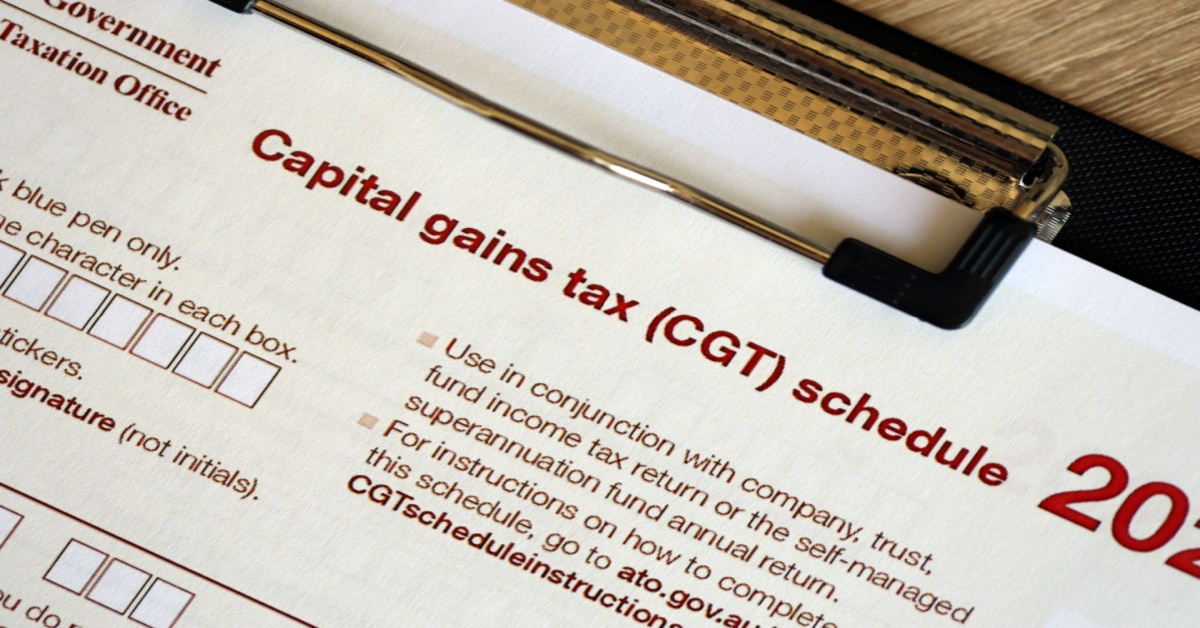Table of Contents
Quality Service Guarantee Or Painting Free

Get a rental agreement with doorstep delivery

Find the BEST deals and get unbelievable DISCOUNTS directly from builders!

5-Star rated painters, premium paints and services at the BEST PRICES!
Loved what you read? Share it with others!


Submit the Form to Unlock the Best Deals Today
Check Your Eligibility Instantly

Experience The NoBrokerHood Difference!
Set up a demo for the entire community
Selling a House with Solar Panels: A Comprehensive Guide
Table of Contents
The demand for eco-friendly homes is on the rise, with more buyers prioritising sustainability and energy efficiency. As a result, selling a house with solar panels has become increasingly popular. Let’s navigate sellers through the process of selling homes equipped with solar panels, highlighting their advantages and addressing common concerns along the way. From maximising property value to attracting environmentally conscious buyers, let’s explore how solar panels can be a valuable asset in today's real estate market.
Benefits of Solar Panels for Sellers
Installing solar panels on your home isn’t just about energy efficiency—it’s a strategic move that can enhance your home’s marketability and appeal. As the trend toward sustainable living grows, homes with solar installations are becoming increasingly sought after for a variety of reasons:
Increased Property Value
- Homes equipped with solar panels tend to sell for a higher price than those without.
- Market analyses often show a value increase of around 4.1% on homes with solar systems, with specific regions experiencing even greater boosts in property value.
Energy Efficiency and Cost Savings
- Solar panels significantly reduce monthly energy expenses, a major selling point for budget-conscious buyers.
- Homeowners can benefit from net metering, earning credits by sending unused electricity back to the grid, thus offsetting future energy costs.
Environmental Impact
- Solar energy reduces reliance on fossil fuels, decreases carbon emissions, and minimises overall environmental footprint.
- Buyers attracted to eco-friendly homes often prioritise properties with existing solar solutions, reducing the need for future upgrades.
Modern Home Appeal
- Properties with solar panels are often perceived as modern and technologically advanced.
- This modern appeal can attract a demographic of buyers interested in homes that embody a forward-thinking lifestyle.
Longevity and Low Maintenance
- Solar panels are durable and require minimal maintenance, providing hassle-free operation for many years.
- This long-term durability is appealing to buyers who prefer homes with low upkeep requirements.
Types of Solar Panel Systems and Their Impact on Sales
When it comes to selling a home with solar panels, understanding the types of solar panel systems installed can significantly affect the sales process. Here are the various types of solar panel systems and how they can impact the sale of your home.
Quality Service Guarantee Or Painting Free

Get a rental agreement with doorstep delivery

Find the BEST deals and get unbelievable DISCOUNTS directly from builders!

5-Star rated painters, premium paints and services at the BEST PRICES!
- Grid-Tied Systems: These solar panel systems are connected to the local utility grid. They generate electricity during the day, and any excess power is fed back into the grid for credit. Grid-tied systems are popular for their cost-effectiveness and reliability. For homebuyers, knowing that they can potentially save on utility bills by harnessing solar energy can be a strong selling point.
- Off-Grid Systems: Unlike grid-tied systems, off-grid solar panel systems operate independently of the utility grid. They rely on batteries to store excess energy generated during the day for use at night or when sunlight is not available. Off-grid systems are attractive to buyers seeking energy independence or those living in remote areas without access to the grid.
- Hybrid Systems: Hybrid solar panel systems combine the features of both grid-tied and off-grid systems. They are connected to the utility grid but also have battery storage capabilities. This setup allows homeowners to use solar energy during the day, store excess energy for later use, and still have access to the grid when needed. Hybrid systems offer flexibility and resilience, which can appeal to a wide range of buyers.
- Solar Lease or Power Purchase Agreements (PPAs): Some homeowners opt for solar leases or PPAs, where a third party owns and maintains the solar panel system installed on the property, and the homeowner pays for the electricity generated at a fixed rate. While this arrangement may reduce the upfront costs of installing solar panels, it's essential to consider the transferability of the lease or PPA agreement when selling the house.
The type of solar panel system installed can influence the perceived value of a property. Buyers may be willing to pay more for a home with a grid-tied system that offers potential long-term savings on utility bills or for an off-grid system that provides energy independence. Additionally, the presence of a well-maintained solar panel system can enhance the overall curb appeal and eco-friendliness of the property, attracting environmentally conscious buyers.
Selling a House with Owned Solar Panels
Owning a house with solar panels isn't just about going green; it's about smart homeownership. Here's how to leverage this asset when selling your home:
Solar Savings: Your solar panels aren't just shiny additions to your roof; they're money-saving, eco-friendly powerhouses. Highlight how they slash energy bills, shrink carbon footprints, and even offer potential tax perks. These panels aren't just about environmental consciousness; they're about long-term savings and financial savvy. Make sure potential buyers see the value in every sun-soaked kilowatt.
Documenting Ownership: When it comes to selling a house with solar panels, paperwork is your friend. Ensure you have all the documentation ready to prove ownership, warranty details, and performance history. Buyers will want to know the ins and outs of your solar setup, from installation to maintenance. Having this info at the ready builds trust and streamlines the sales process, so you can seal the deal with confidence.
Smooth Transition: Make transferring ownership of your solar system a breeze. Buyers will appreciate knowing they can seamlessly take over and reap the benefits of solar energy. Work with your installer to ensure warranties and contracts are transferable, and provide clear instructions on system operation and maintenance. A smooth transition ensures both you and the buyer can soak up the sun's benefits hassle-free.
Additional Selling Points:
- Powering Upgrades: Highlight any upgrades to your solar setup, like advanced monitoring software or added panels for increased energy production.
- Warranty Confidence: Offer a home warranty that covers your solar system, giving buyers added peace of mind.
- Financial Incentives: Educate buyers on the financial perks of solar, like net metering and renewable energy credits, to sweeten the deal.
- Reliable Investment: Emphasise the durability and reliability of solar panels, backed by long warranties and low maintenance needs.
Selling a House with Financed Solar Panels
Selling a house with financed solar panels requires careful consideration of transfer options and buyer incentives. Here's what you need to know to navigate this process smoothly:
Transfer Options: If you've financed your solar panels through a lease or power purchase agreement (PPA), transferring these agreements to the buyer is crucial. Outline the steps involved in transferring the lease or PPA, including any buyout options or transfer fees. Be transparent about the implications for both the seller and the buyer, such as remaining contract terms and monthly payments. Providing clear guidance on how to handle these agreements can alleviate concerns and streamline the sales process.
Buyer Incentives: Highlight the incentives for buyers to take over solar agreements when purchasing your home. Emphasise the immediate cost savings and lower energy rates they can enjoy by harnessing solar energy. Buyers may be attracted to the prospect of locking in fixed energy costs and reducing their reliance on traditional utility companies. Additionally, discuss any potential tax benefits or rebates available to buyers who assume the solar agreements, further sweetening the deal.
Additional Points to Consider:
- Financial Benefits: Explain how assuming a solar lease or PPA can provide buyers with a hedge against rising energy costs, potentially increasing the overall value of the property.
- Environmental Impact: Appeal to environmentally conscious buyers by highlighting the positive environmental impact of solar energy and its role in reducing carbon emissions.
- Contractual Obligations: Ensure buyers understand the terms and obligations of the existing solar agreements, including maintenance responsibilities and performance guarantees.
- Flexibility: Offer flexibility in negotiating the terms of the solar agreements to accommodate the needs and preferences of both parties.
Overcoming Hurdles in Selling Solar-Powered Homes
Selling a house with solar panels comes with its share of challenges, but with the right approach, you can overcome them smoothly. Here's how to tackle common obstacles in the process:
Clarifying Market Misunderstandings: One of the biggest hurdles in selling a solar-powered home is dispelling misconceptions about solar energy systems. Address common concerns, such as high maintenance and installation costs, by providing accurate information and debunking myths. Highlight the long-term savings and environmental benefits of solar panels to showcase their value proposition to potential buyers.
Insights on Appraisal Accuracy: Getting a proper appraisal that accurately reflects the added value of solar panels is crucial. Provide advice on how to prepare for an appraisal, including documenting the installation and performance of the solar system. Educate appraisers on the financial benefits and market demand for solar-powered homes to ensure they consider these factors when determining the property's value. A well-informed appraisal can help justify the asking price and attract buyers willing to pay a premium for solar features.
Navigating Contractual Complexities: Transferring leases or loans associated with solar panels can be complex and daunting for both sellers and buyers. Offer practical tips on how to navigate these contractual complexities, such as reviewing the terms and conditions of existing agreements, understanding transfer processes, and seeking legal advice if necessary. Clear communication and collaboration with solar providers can streamline the transfer process and alleviate concerns for all parties involved.
Additional Points to Consider:
- Educating Buyers: Take the time to educate potential buyers about the benefits and operation of solar panels, addressing any concerns or questions they may have.
- Highlighting ROI: Emphasise the return on investment (ROI) of solar panels, including potential savings on energy bills and increased property value over time.
- Staying Flexible: Be prepared to negotiate terms and offer incentives to buyers to overcome any remaining hesitations about purchasing a solar-powered home.
Tips to Maximise Sales Potential for Solar-Powered Homes
When selling a house with solar panels, effective presentation and strategic marketing are essential. Highlighting solar benefits during home showings, employing targeted marketing strategies, and partnering with experienced real estate agents can amplify your property's appeal and streamline the sales process. Let's explore these key points further:
Home Staging and Solar Benefits: When staging your home for sale, don't overlook the power of presenting your solar panels effectively. Highlight their benefits during home showings by showcasing energy bill savings, environmental friendliness, and the potential for increased property value. Ensure panels are clean and well-maintained, and consider providing informational materials to educate potential buyers about the advantages of solar energy.
Strategic Marketing Approaches: In your marketing efforts, leverage the unique selling points of solar-powered homes to attract buyers. Emphasise total lifetime savings in listings, showcasing how solar panels can lead to significant reductions in energy costs over time. Use high-quality photos and descriptive language to highlight the aesthetics and functionality of the solar system, and consider including testimonials from satisfied solar homeowners to build trust with potential buyers.
Selecting the Right Agent: Choosing a real estate agent with experience in selling homes with solar panels can make a significant difference in the selling process. Look for an agent who understands the benefits of solar energy and can effectively communicate them to potential buyers. A knowledgeable agent will be able to address buyer concerns, negotiate effectively on your behalf, and ensure that your solar-powered home stands out in the market.
Additional Tips to Consider:
- Invest in Curb Appeal: Enhance the curb appeal of your home by maintaining landscaping around solar panels and ensuring they blend seamlessly with the overall aesthetic of the property.
- Offer Financing Options: Consider offering financing options for potential buyers to make purchasing a solar-powered home more accessible. Partnering with solar lenders or providing information on available incentives and rebates can further incentivise buyers.
- Educate and Engage: Host informational sessions or open houses focused on solar energy to educate potential buyers and generate interest in your home. Encourage interaction and questions to address any concerns and build rapport with potential buyers.
Navigating Legal and Administrative Essentials for Selling Solar-Powered Homes
When selling a house equipped with solar panels, navigating legal and administrative considerations is paramount. Here's what you need to know to ensure a smooth transaction:
Understanding Local Laws and Regulations: Before listing your solar-powered home, familiarise yourself with local laws and regulations governing solar panel transfers. Ensure compliance with all relevant regulations and policies related to solar power generation and home sales in India. This includes obtaining necessary permits, approvals, and certifications from local authorities and regulatory bodies.
Transparent Communication with Buyers: Transparent communication with potential buyers is essential when selling a house with solar panels. Clearly convey the status and terms of the solar panel setup, including ownership, warranties, maintenance records, and any existing contracts or agreements. Providing comprehensive information upfront builds trust and helps buyers make informed decisions about the property.
Additional Considerations to Keep in Mind
- Documentation and Records: Maintain thorough documentation and records related to the solar panel system, including installation permits, warranties, maintenance logs, and utility bill histories. Having organised paperwork readily available streamlines the sales process and reassures buyers of the system's reliability.
- Transfer Procedures: Understand the procedures for transferring ownership of the solar panels to the buyer. This may involve coordinating with the solar panel installer or provider to ensure a seamless transition of ownership, warranties, and any associated agreements.
- Financial Implications: Consider the financial implications of selling a solar-powered home, such as potential tax implications or adjustments to the sale price based on the value of the solar energy system. Consult with a financial advisor or real estate professional to assess the impact on your bottom line.
Unlocking Solar-Powered Potential with NoBroker!
Selling a house with solar panels offers myriad benefits, from reduced energy bills to increased property value. Selling a house with solar panels? Leverage this unique selling point on NoBroker to attract eco-conscious buyers seeking sustainable homes. Our platform connects you directly with interested buyers, ensuring a hassle-free selling experience. Whether you're selling or renting, NoBroker streamlines the process, helping you secure the best deals with ease. List your solar-equipped property on NoBroker today and maximise your home's market potential.
Frequently Asked Questions
Ans: Yes, selling a house with solar panels on the roof can significantly increase its value by offering potential buyers long-term energy savings and environmental benefits, making it an attractive investment in today's eco-conscious market.
Ans: No, in fact, homes with solar panels often sell faster and at a premium due to lower energy costs and increased property value.
Ans: Yes, homes with solar panels often sell faster due to their appeal to eco-conscious buyers and potential long-term cost savings on energy bills.
Ans: It depends on the type of contract. For leased or financed systems, you may need to transfer the contract to the buyer. Consult with your solar provider for guidance.
Ans: Yes, depending on your location, you may qualify for federal or state tax incentives, rebates, or renewable energy credits for installing solar panels. Check with your local government or a tax professional for details.
Loved what you read? Share it with others!
Most Viewed Articles

What is TDS on Sale of Property? Rates, Procedures, and Filing Requirements
February 3, 2025
16642+ views

10 Best Property Selling Apps in India: Fast, Easy, and Efficient Property Selling Apps in 2025
January 30, 2025
15237+ views

Capital Gains Tax on Sale of Agricultural Land: Rules, Exemptions, and Savings in 2025
January 31, 2025
15087+ views

Capital Gain Account Scheme (CGAS): Features, Benefits, and How to Open an Account in 2025
January 30, 2025
10296+ views

Section 27 of the Income Tax Act, 1961: Understanding Deemed Ownership
January 31, 2025
9281+ views
Recent blogs in
Capital Gain Tax on Sale of Property: Tax, Key Rules, Rates, Calculation and Exemptions 2025
February 3, 2025 by Kruthi
What is TDS on Sale of Property? Rates, Procedures, and Filing Requirements
February 3, 2025 by Vivek Mishra
Capital Gains Tax on Sale of Agricultural Land: Rules, Exemptions, and Savings in 2025
January 31, 2025 by srivalli susarla
Increase the Value of Your Home: Smart Strategies for 2025
January 31, 2025 by NoBroker.com
Section 54 of Income Tax Act: A Guide to Capital Gains Exemption in 2025
January 31, 2025 by Kruthi





Join the conversation!